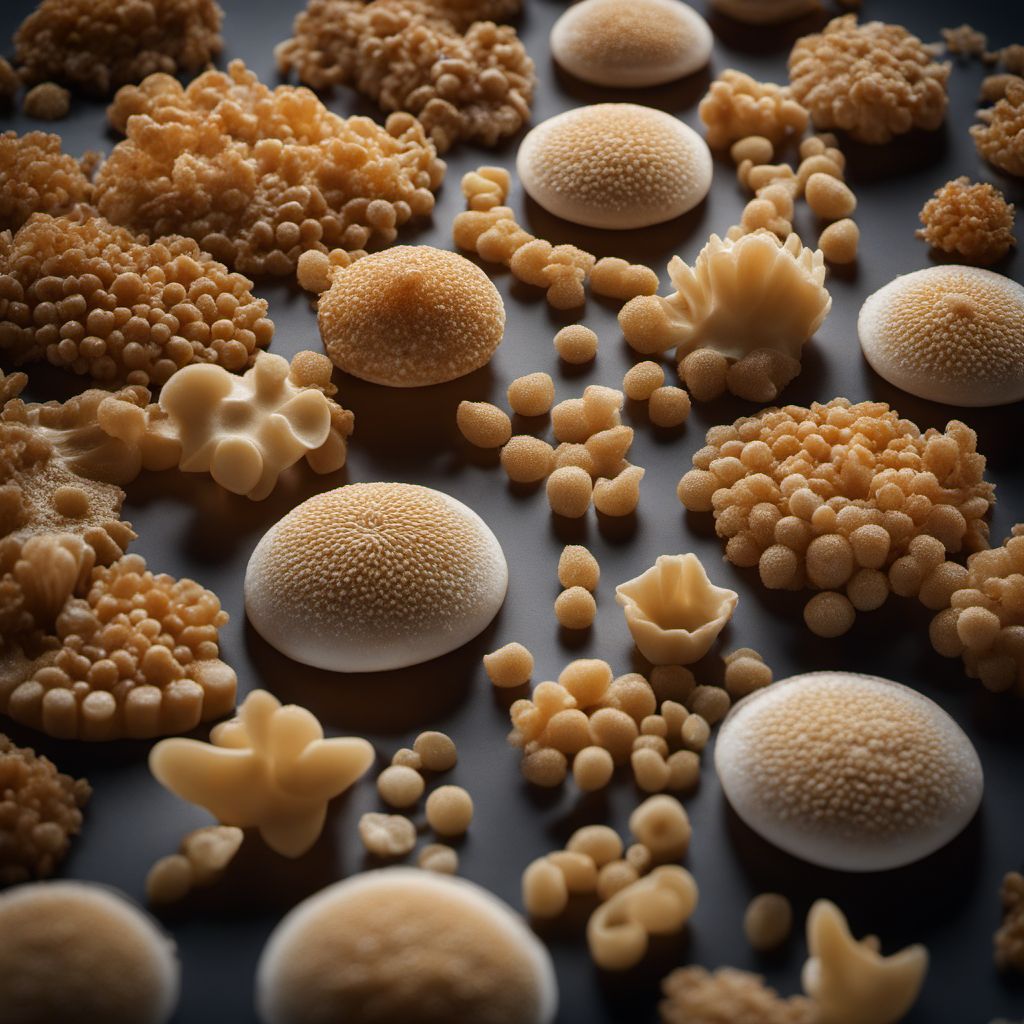
Ingredient
Mould or micro-fungal cultures
The Art of Fermentation: Mould or Micro-Fungal Cultures
Mould or micro-fungal cultures are microscopic organisms that are intentionally introduced into food products to initiate the fermentation process. They can be in the form of molds, yeasts, or bacteria, depending on the desired outcome. These cultures contribute to the development of complex flavors, textures, and aromas in fermented foods, transforming raw ingredients into culinary delights.
Origins and history
The use of mould or micro-fungal cultures in food fermentation can be traced back thousands of years. Ancient civilizations, such as the Egyptians, Greeks, and Romans, utilized these cultures to preserve and enhance the flavor of various foods. Over time, different techniques and strains of cultures have been developed, leading to the diverse range of fermented products we enjoy today.
Nutritional information
Mould or micro-fungal cultures do not contribute significant nutritional value to foods, but they play a crucial role in breaking down complex compounds, improving digestibility, and enhancing the bioavailability of certain nutrients.
Allergens
There are no known allergens associated with mould or micro-fungal cultures, but individuals with specific sensitivities or allergies to molds should exercise caution.
How to select
When selecting mould or micro-fungal cultures, it is essential to choose reputable sources that provide high-quality, food-grade cultures. Follow the instructions provided by the manufacturer for proper usage and storage.
Storage recommendations
To maintain the viability of mould or micro-fungal cultures, store them according to the manufacturer's instructions. Typically, they are stored in a cool, dry place, away from direct sunlight and moisture.
How to produce
Producing mould or micro-fungal cultures requires specialized knowledge and equipment. It is recommended to learn from experienced fermenters or take courses on food fermentation to ensure safe and successful production.
Preparation tips
Mould or micro-fungal cultures are primarily used in the production of cheeses, such as blue cheese, Camembert, and Roquefort. They are also essential in the fermentation of sourdough bread, sausages, fermented vegetables, and certain beverages, such as kombucha and kefir.
Culinary uses
Mould or micro-fungal cultures are widely used in various cuisines around the world, particularly in the production of fermented dairy products and bread.
Availability
Mould or micro-fungal cultures are available globally, as they are produced and distributed by specialized suppliers and manufacturers.


